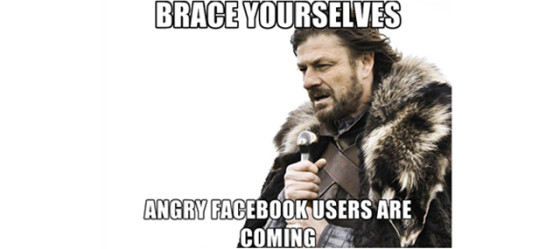New York’s Ransomville Speedway recently caused a bit of a stir in the dirt racing world when it posted a new social media policy on the track’s website. In that posting, the track laid down guidelines, particularly for its competitors, regarding the use of social media to discuss happenings at the track. In their attempt to curtail negatively charged posts and discussion, the track detailed somewhat significant punishments that could potentially be levied against the offenders.
Here is the text of the track’s website posting:
“Everyone must be aware that posting in social media is like speaking into a live microphone.
Media outlets can and quite often do pick up on social media comments. Be aware that all teams depend on their sponsors to race weekly. Everyone should respect the value of our fan base and sponsors. By the time an offensive post or tweet shows up, it is too late to stop the spiraling effect for the Speedway. You may feel that you cannot control the comments made in support of your initial comments, but that is not the case. Negative social media in any form about Ransomville Speedway, Ransomville Speedway officials, or racers will not be tolerated. Depending on the severity of the incident, fines or suspensions may be assessed. Please help us by speaking with your entire team of this policy.”
Before going any further, I want to address one thing regarding the post as someone may want to challenge this policy on the grounds it could be in violation of the First Amendment to the U.S. Constitution, which guarantees the right of free speech. As a teacher of U.S. Government, I can assure you that this notion is false.
The track’s policy is not taking away anyone’s right to free speech. What many seem to forget when touting the First Amendment is that it does not protect you from the repercussions of said free speech. For example, any of us is free to speak out against the workplace policies of the organizations that employ us. However, our bosses are free to fire or demote us as a result of what we say.
From a personal standpoint, I am very much a believer in the right to run your own private property as you see fit. And race tracks are most definitely private property, so, in the opinion of this writer, track owners are free to have whatever social media policies they want. (I’ll save the rest of my lecture for my classes.)
The real issue at hand here is whether or not social media has an impact on race tracks and/or racing series. In my opinion, the simple answer is that it absolutely does.
I think we all realize the damage that can be done by word of mouth on a business. For example, have you eaten at a Chipolte Mexican Grill since word got out that many people who have eaten at those stores became ill shortly afterward? Why would a race track be any different from a restaurant?
If competitors and/or fans are constantly pointing out the negative, why would other fans want to visit or why would new sponsors want to get involved?
Do not mistake that last statement for saying that poorly run tracks should go without criticism. It should be pointed out when tracks do not conduct business in a fair way or when they offer up poorly run shows. But this needs to be done in an appropriate manner and going straight to Facebook or Twitter after a bad experience, especially if it’s the first time something bad has happened, is probably not the best route.
For whatever reason, dirt racing seems to have more than its fair share of negativity among those who claim they love the sport. There is an element of those involved in the sport as fans and competitors who seem to thrive on pointing out the negative. And what often surprises me is the number of folks who do this even though their livelihood is based on racing. You would think those people would be going out of their way to uplift the sport instead of tearing it down.
And it’s those very people who go to social media immediately after something happens at a track that they don’t like without any cooling off period or face-to-face meeting with the promoter or track owner.
Again, tracks that are poorly run should be exposed. But this should happen only after multiple occurrences rather than just one bad incident have taken place and face-to-face meetings with those who control policy have failed to produce results.
I have a running joke with website partner Michael Moats. Someone can make a post regarding a race they are looking forward to that is going to take place three months later and someone will immediately respond that it will probably rain that weekend. While that may be an exaggeration, the desire to post negativity about dirt racing is real for some. And posting those things on social media does have an impact on others.
The sport would be better off as a whole if we would all remember that.






